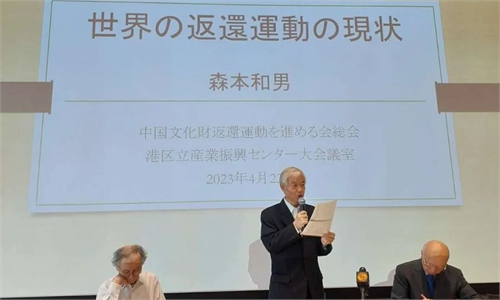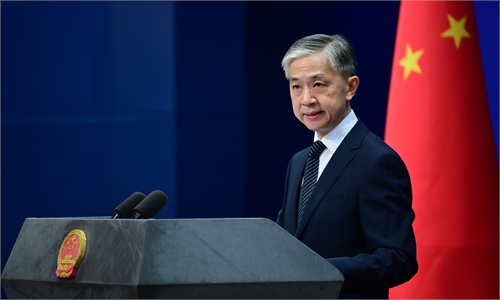
Photo: VCG
Japan recently announced plans to revise its Foreign Exchange and Foreign Trade Act (FEFTA) which “shall apply to inward direct investment and equivalent actions to be made on or after May 24” to impose semiconductor export restrictions, according to the Japanese Finance Ministry. The controls will cover six categories of equipment used in chip-making and 23 types of equipment used to make semiconductors.Equipment exporters will require licenses for all regions, giving the ministry oversight on the sale of equipment to third-party countries that could, in theory, produce high-end chips for military use, the Financial Times reported last month. As a country highly dependent on overseas markets and resources, Japan’s role as a promoter of deglobalization in the semiconductor industry is not wise.
This is a move by Japan to join US effort to crack down on China’s chip industry, which will seriously impact the stability and predictability of the global chip supply chain and severely disrupt regional economic and trade cooperation. Japanese Trade Minister Yasutoshi Nishimura said the move was not in coordination with the US’ restrictions. But whether Japan is at US’ beck and call is quite obvious.
Three points can be tossed out to explain how unwise Japan is.
First, the US is strengthening its control of semiconductor exports, focusing on deposition equipment. However, Japan’s proposed restrictions not only cover deposition equipment, but also equipment of lithography, etch, cleaning, testing. Japan, which may want to show its loyalty to the US, would do well to recall how it was envied by the US in the past, when it had a considerable share of global DRAM (dynamic random-access memory) chip market, yet was bullied by the US in this sector. How can Japan forget its painful past and becomes an accomplice of the US?
Second, Japan, as an outward-oriented economy, is keen to weaponize trade and technology. This is tantamount to digging its own grave. Some Japanese people say that being a trading nation is outdated, and now it is necessary to emphasize pursuing prosperity through investment and technology. But can Japan live a good life without external markets and resources? And besides China, which country in the world can truly provide sustained market opportunities and resource supplies for Japan? China is the largest semiconductor market in the world, and China's integrated circuit imports are equal to nearly $600 billion per year.
Creating opportunities requires joint efforts from both sides. Japan has been leading the way in creating a trade environment with high barriers, but ultimately Japan is the one that suffers the most. Takamoto Suzuki, head of economic research for Marubeni in China, said Japan’s latest measures will be a blow to Japanese equipment makers given the absence of a strong domestic chip market. “It will undermine the market development of Japanese companies and certainly reduce their competitiveness from a regulatory aspect.”
Third, Japan's policy of prioritizing itself over its neighbors and disrupting regional cooperation will eventually backfire. In recent years, Japan has developed a new habit when it comes to handling its relationships with neighboring countries, frequently implementing export controls to pressure the other side. It first imposed export controls on semiconductor raw materials to South Korea (which has now been lifted), and now it has imposed even more extensive semiconductor export controls on China. If taking sanctions against Russia and North Korea into consideration, Japan is probably the only country in the world that has consecutively imposed sanctions on its four neighbors.
Japan is still not satisfied and is promoting the use of ideology to restrict technology beyond semiconductors and into biotechnology, artificial intelligence, quantum science, and other fields.
It can be seen that Japan still deals with regional affairs with a mentality of “Datsua Nyuo” (leave Asia, enter Europe) or Leave Asia, enter America. Unfortunately, no matter how hard Japan tries, it is still located on the edge of East Asia. In the long run, Japan can only find a foundation for its sustained survival and growth in regional economic integration. Disrupting the regional economic order and encouraging bloc confrontation will only make Japan’s external environment deteriorate.
China's principle has always been that we will not attack unless we are attacked. In the face of Japan’s discriminatory export controls implemented under the excuse of national security, China has both reasons and approaches to carry out asymmetrical countermeasures.
The author is director of Arms Control Studies Center, China Institutes of Contemporary International Relations. opinion@globaltimes.com.cn


